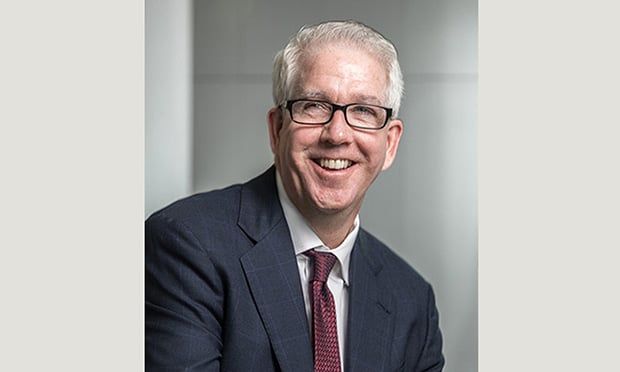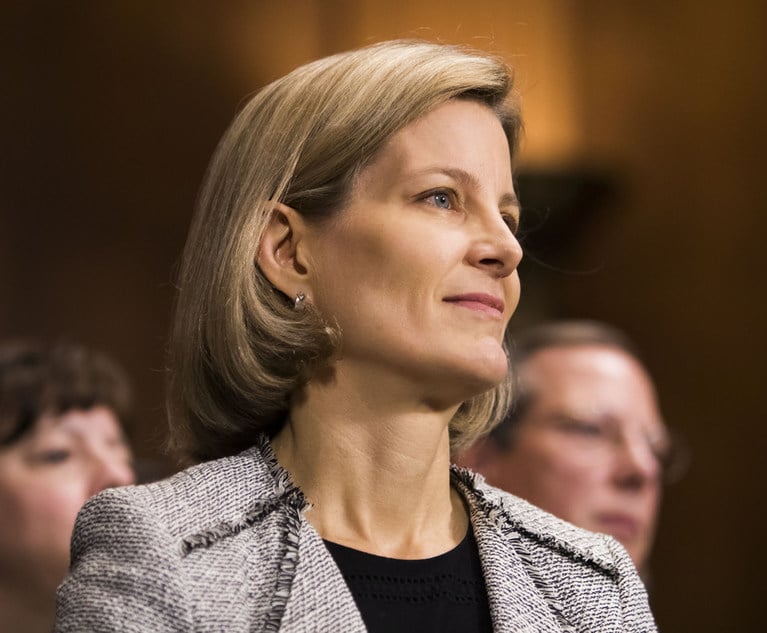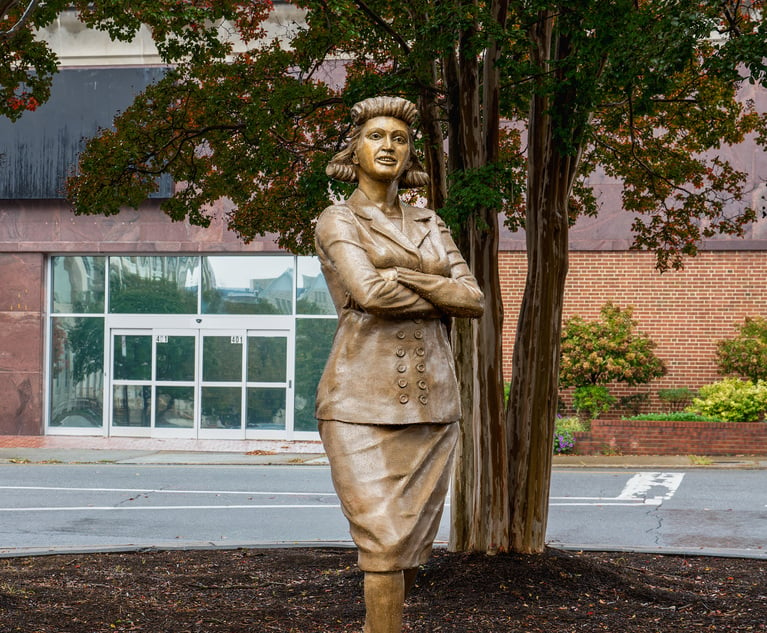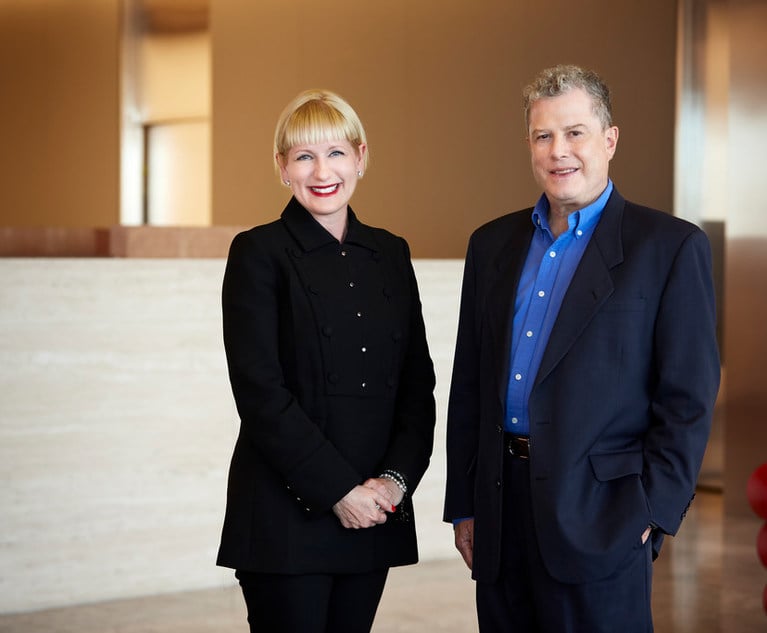How AbbVie and Humira Avoided 'Pay for Delay' Finding
The company's agreement to trade biosimilar competitors' earlier market entry in Europe for lengthier exclusivity in the U.S. does not run afoul of the Supreme Court's Actavis decision, U.S. District Judge Manish Shah ruled Monday.
June 08, 2020 at 08:20 PM
3 minute read
 James Hurst, Kirkland & Ellis (Photo: Todd Winters)
James Hurst, Kirkland & Ellis (Photo: Todd Winters)The notorious 100-plus patent thicket that AbbVie Inc. planted around biologic drug Humira—and the company's deals with competitors to enter the market—do not run afoul of federal antitrust laws.
So ruled U.S. District Judge Manish Shah of the Northern District of Illinois in what's being called the first decision on "pay to delay" allegations in the biosimilar market.
The decision appears to cement AbbVie's hold on the U.S. market for Humira, which rang up sales of more than $56 billion in the United States between 2012 and 2018, until 2023.
Lawyers bringing a class action on behalf of indirect purchasers argued that AbbVie had unfairly negotiated a quid pro quo with biosimilar makers such as Samsung Bioepis Co. Ltd., Amgen Inc., and Sandoz Inc. The deals called for entry into the European market in 2018 in exchange for introduction to the U.S. market starting in 2023. "AbbVie's motive was to keep prices in the U.S. artificially high for as long as possible," Shah wrote in a 72-page order, paraphrasing the complaint in the case. "It succeeded: the cost of Humira to treat arthritis in the U.S. remains 50% more expensive than the cost of the same treatment in Spain (and 155% more expensive than in Switzerland)."
But that doesn't make it anti-competitive, Shah concluded. Although the Supreme Court ruled in 2013 that cash payments in exchange for delayed entry can be illegal, entry into a foreign market is not. That's especially true here, Shah wrote, where AbbVie arguably was giving up some of the time it had left on some patents in each market.
"The transfer of value, as large as it was, did not have the hallmarks of an unjustified and otherwise inexplicable payment because the package either increased competition or preserved an anticompetitive status quo," Shah wrote in rejecting plaintiffs' Section 1 claims under the Sherman Act. "The effect of the payment was to increase, not restrain competition by bringing competitors into the market when patents otherwise prohibited the competition."
The plaintiffs, labor unions who operate health benefit plans, argued that the AbbVie patents are weak, and without the carrot of 2018 entry into Europe, the biosimilars would have been more motivated to invalidate them in court. But Shah found that Abbvie's success at obtaining 132 patents from the PTO for 247 total applications, and the USPTO's decision not to entertain 13 out of 20 post-grant challenges, prove that AbbVie's patents are not a "sham," and therefore protected by the Noerr-Pennington doctrine.
Kirkland & Ellis partners Diana Watral, James Hurst and Damon Andrews signed the defendants' motion to dismiss for AbbVie. O'Melveny & Myers partners Ian Simmons, Benjamin Bradshaw and Stephen McIntyre and associates Kurt Brown, Brian Quinn and Patrick Jones represented Samsung Bioepis along with Riley Safer Holmes & Cancila partners Thomas Quinn, Ronald Safer and Sondra Hemeryck. Sidley Austin partners Bruce Braun, David Giardina and Steven Horowitz represented Amgen. Sandoz was represented by Baker Botts partners Stephen Weissman, Michael Perry, William Lavery, senior associate Christopher Wilson and associate Elisa Beneze.
This content has been archived. It is available through our partners, LexisNexis® and Bloomberg Law.
To view this content, please continue to their sites.
Not a Lexis Subscriber?
Subscribe Now
Not a Bloomberg Law Subscriber?
Subscribe Now
NOT FOR REPRINT
© 2025 ALM Global, LLC, All Rights Reserved. Request academic re-use from www.copyright.com. All other uses, submit a request to [email protected]. For more information visit Asset & Logo Licensing.
You Might Like
View All
'Irreparable Harm'?: US Judge Denies Big Pharma Motion to Halt FDA-Approved Generic Drug
3 minute read
'Johns Hopkins Preyed on Black Women': Ben Crump Reps Henrietta Lacks Estate
3 minute read
Several Am Law 100 Firms Help Compliance Startup SingleFile Raise $6.5M

Jenner, Looking at 'Stretch' Goals, Reached Double-Digit Revenue and Profit Growth
5 minute readLaw Firms Mentioned
Trending Stories
- 111th Circuit Rejects Trump's Emergency Request as DOJ Prepares to Release Special Counsel's Final Report
- 2Supreme Court Takes Up Challenge to ACA Task Force
- 3'Tragedy of Unspeakable Proportions:' Could Edison, DWP, Face Lawsuits Over LA Wildfires?
- 4Meta Pulls Plug on DEI Programs
- 5On the Move and After Hours: Meyner and Landis; Cooper Levenson; Ogletree Deakins; Saiber
Who Got The Work
Michael G. Bongiorno, Andrew Scott Dulberg and Elizabeth E. Driscoll from Wilmer Cutler Pickering Hale and Dorr have stepped in to represent Symbotic Inc., an A.I.-enabled technology platform that focuses on increasing supply chain efficiency, and other defendants in a pending shareholder derivative lawsuit. The case, filed Oct. 2 in Massachusetts District Court by the Brown Law Firm on behalf of Stephen Austen, accuses certain officers and directors of misleading investors in regard to Symbotic's potential for margin growth by failing to disclose that the company was not equipped to timely deploy its systems or manage expenses through project delays. The case, assigned to U.S. District Judge Nathaniel M. Gorton, is 1:24-cv-12522, Austen v. Cohen et al.
Who Got The Work
Edmund Polubinski and Marie Killmond of Davis Polk & Wardwell have entered appearances for data platform software development company MongoDB and other defendants in a pending shareholder derivative lawsuit. The action, filed Oct. 7 in New York Southern District Court by the Brown Law Firm, accuses the company's directors and/or officers of falsely expressing confidence in the company’s restructuring of its sales incentive plan and downplaying the severity of decreases in its upfront commitments. The case is 1:24-cv-07594, Roy v. Ittycheria et al.
Who Got The Work
Amy O. Bruchs and Kurt F. Ellison of Michael Best & Friedrich have entered appearances for Epic Systems Corp. in a pending employment discrimination lawsuit. The suit was filed Sept. 7 in Wisconsin Western District Court by Levine Eisberner LLC and Siri & Glimstad on behalf of a project manager who claims that he was wrongfully terminated after applying for a religious exemption to the defendant's COVID-19 vaccine mandate. The case, assigned to U.S. Magistrate Judge Anita Marie Boor, is 3:24-cv-00630, Secker, Nathan v. Epic Systems Corporation.
Who Got The Work
David X. Sullivan, Thomas J. Finn and Gregory A. Hall from McCarter & English have entered appearances for Sunrun Installation Services in a pending civil rights lawsuit. The complaint was filed Sept. 4 in Connecticut District Court by attorney Robert M. Berke on behalf of former employee George Edward Steins, who was arrested and charged with employing an unregistered home improvement salesperson. The complaint alleges that had Sunrun informed the Connecticut Department of Consumer Protection that the plaintiff's employment had ended in 2017 and that he no longer held Sunrun's home improvement contractor license, he would not have been hit with charges, which were dismissed in May 2024. The case, assigned to U.S. District Judge Jeffrey A. Meyer, is 3:24-cv-01423, Steins v. Sunrun, Inc. et al.
Who Got The Work
Greenberg Traurig shareholder Joshua L. Raskin has entered an appearance for boohoo.com UK Ltd. in a pending patent infringement lawsuit. The suit, filed Sept. 3 in Texas Eastern District Court by Rozier Hardt McDonough on behalf of Alto Dynamics, asserts five patents related to an online shopping platform. The case, assigned to U.S. District Judge Rodney Gilstrap, is 2:24-cv-00719, Alto Dynamics, LLC v. boohoo.com UK Limited.
Featured Firms
Law Offices of Gary Martin Hays & Associates, P.C.
(470) 294-1674
Law Offices of Mark E. Salomone
(857) 444-6468
Smith & Hassler
(713) 739-1250










